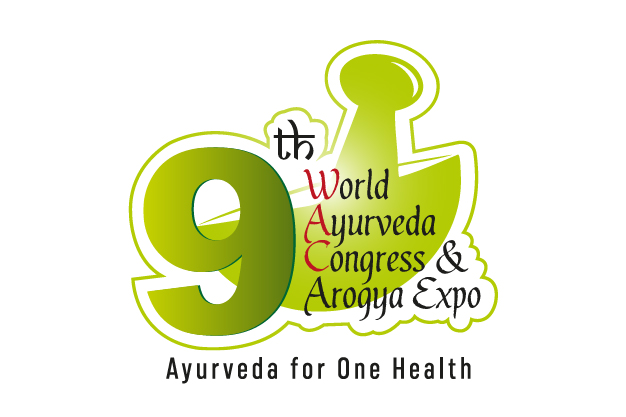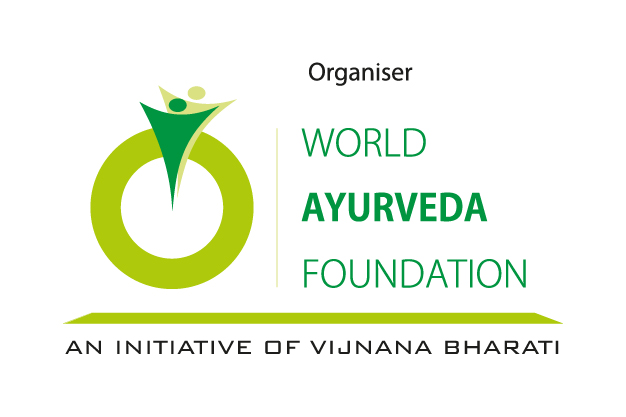Satva TV, an initiative of Satvajnana Foundation participated in 9th World Ayurveda Congress Arogya Expo 2022 Goa, India
The World Ayurveda Congress & Arogya Expo 2022 held in Goa from 8- 11 December with a really perfect to provide a international platform to stakeholders, which include assiduity leaders, interpreters, conventional healers, educationists, scholars, drug manufacturers, etc. for networking and attractive in highbrow change to bolster the Ayurveda sector, fantasize its future, and grease trade among experts and customers to enhance Ayurveda trade.
The theme for the 9th World Ayurveda Congress (WAC) this year is ‘Ayurveda For One Health’. Over 4500 Participants from all over the world including 400 foreign delegates from 53 countries are participating in the 9th World Ayurveda Congress & Arogya Expo.
The Arogya Expo is set to witness participation of more than 215 companies, leading Ayurveda brands, medicine manufactures and Ayurveda related educational and Research & Development institutions. Especially from Kerala SATVA TV, a part of SATVAJNANA FOUNDATION participated in Ayurveda Congress and quoted their involvement and roles in Ayurveda Network and Sector.
The Arogya Expo is set to witness participation of more than 215 companies, leading Ayurveda brands, medicine manufactures and Ayurveda related educational and Research & Development institutions. Especially from Kerala SATVA TV, a part of SATVAJNANA FOUNDATION participated in Ayurveda Congress and quoted their involvement and roles in Ayurveda Network and Sector.
Ayurveda must integrate innovative designs for stronger treatment: global meet
Ayurveda must increasingly accommodate innovative designs to introduce modern tools that meet global quality standards so as to improve the treatment procedures under the ancient wellness system, experts said at an international health meet today.
All the same, integrated medicine must not dilute the fundamentals of India’s time-tested practices that go for a holistic approach to the body and soul, speakers noted at a plenary session of the 9th World Ayurveda Congress (WAC) in this city.
India needs more design institutions for the benefit of its ancient wellness systems, the speaker said in his power-point presentation on ‘Technological Dimensions’ that cited design-driven equipment such as herbal fumigator and an automated machine aiding Basti technique which purifies the human intestine.
All India Institute of Ayurveda Director (AIIA) Prof Tanuja Nesari, as chair, spoke of the prospect of Ayurveda graduating to the status of a no-medicine system if its health prescriptions on daily food intake found widespread following. Dr S. Rajagopala of AIIA moderated the 75-minute session.
The December 8-11 WAC chiefly seeks to chart out a roadmap leading to globalisation of Ayurveda and harness its potential as a scientific and prevention-oriented healthcare system.
Integrated medicine requires more studies, collaborations: WAC
The country’s health sector merits prolific studies on integrated medicine boosted by inter-sectoral collaborations to cater to global needs, experts said at the World Ayurveda Congress (WAC) today.
Dr S.R. Narahari, who heads the Institute of Applied Dermatology in Kerala’s Kasaragod, noted that Ayurveda prescribes drugs based on a selection method that is different from allopathy. “Yet, Ayurveda practitioners require sufficient knowledge of allopathy, while they should also carry out more studies so as to get into collaborative projects,” he told a WHO Conclave on Traditional Medicine in South-East Asia Region as part of the 9th WAC.
Noting that the patent-centric integrated medicine must be sustainable to meet the global health market, Dr Narahiri further stressed the need for knowledge on the linguistic aspects of Ayurveda. “The equivalents of certain words in Ayurveda are used in a different context in clinical medicine. We need sufficient literacy to know why it is so,” he added, calling for analysis of the data collected so far for the benefit of the common people.
Dr Sumeet Goel of the Ministry of Ayush, sharing the results of AYUSH in tackling the recent pandemic, recalled that authorities provided Ayurveda kits to Delhi’s 80,000 police personnel to counter Covid-19. “We found them to have better preventive care compared to any other forms of medicine. The beneficiaries reported far lower incidents of falling prey to the coronavirus compared to the general public,” added the speaker, who is OSD (Technical) with the Ministry.
Giving another example, he recalled that ITBP created a large facility at Delhi’s Sardar Patel Covid Care Centre, providing integrated treatment. “They provided Kadha concoction along with naturopathy intervention and yoga. The results were encouraging,” he recalled. “Also, a study is being conducted on Ashwagandha, co-administered with Covishield, to assist the immunogenicity of Covid 19 vaccine and protection. It is being done in over 1200 samples.”
The December 8-11 WAC chiefly seeks to chart out a roadmap leading to globalisation of Ayurveda and harness its potential as a scientific and prevention-oriented healthcare system.
Authenticity key in tapping global market for Ayurveda beauty products: WAC
Maintaining authenticity and quality are vital parameters to tap the huge global demand for Ayurveda-based beauty products which is projected to grow exponentially in the coming year, according to speakers at a session on Ayurcosmetology at the ongoing World Ayurveda Congress and Arogya Expo here.
There is a big acceptance the world over for herbal-based and chemical-free ayurveda cosmetics as completely side-effects-free solutions for maintaining a clean and healthy personality, cherished by everyone, they noted.
Researchers from India’s leading Ayurveda institutions made presentations at the session on product formulations and treatment procedures developed by them based on case studies and clinical trials to address various problems related to hair and skin health.
The research institutions should promote evidence-based studies and clinical trials to ensure the efficacy of the product formulations and treatment methods being developed by scholars.
The session saw presentations on a range of topics like ayurvedic remedies for hair relaxers induced hair fall, management of hair diseases, effect of ayurvedic oils in management of dandruff, efficacy of ayurvedic creams against melasma and skin blemishes and pharmaceutical of herbal deodorant, regulatory protocols in the US and other western countries.
Less than half per cent among 65,000 users of Ayurvedic medicines hospitalised during COVID pandemic: AYUSH Secretary
Less than half per cent of around 65,000 COVID-19 patients, who used Ayurvedic formulations, were hospitalised and none of them died due to the pandemic, a top official of the Union Ministry of AYUSH said here today.
The Secretary was speaking at a session on ‘National Ayush Research Consortium (NARC)’ at the ongoing 9th edition of the World Ayurveda Congress (WAC) & Arogya Expo 2022. The December 8-11 conclave is being organised by World Ayurveda Foundation, an initiative of Vijnana Bharati, with the support of the Ministry of Ayush and Govt. of Goa.
Highlighting that AYUSH is a science and huge expectation is there from the sector, Shri Kotecha called for scaling up research and addressing lack of skilling in this vital sector by bringing all stakeholders together to deliver effective results.



